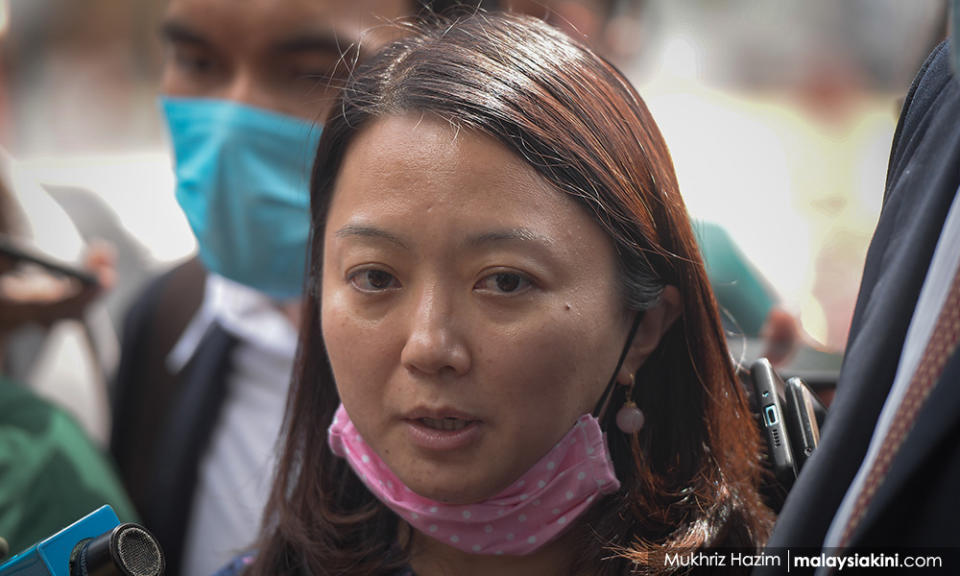Govt moots public kindies with 'better' curriculum for 'higher income' families

The government wants to create an "elite" version of the Community Development Department's (Kemas) kindergartens (Tabika) for four to six-year-olds, with a better curriculum.
The catch? It's targeted for children whose parents have a "higher financial capacity".
Critics claim the proposal will contribute to an education gap between the rich and poor.
According to Berita Harian, Rural Development Deputy Minister Abdul Rahman Mohamad said a draft proposal for the "elite Tabika" is in the works and will be presented to the cabinet for approval.
If approved, he said a pilot project will be created in certain locations "specifically for M40 parents".
"The elite Tabika is proposed only for students whose parents have a high financial capacity because the fees are much higher than the existing Kemas Tabikas, which (currently) cost between RM5 and RM25 per month.
"We are not forcing parents to send their children to the elite Tabika because 10,900 Tabikas are still operating, but the elite Tabika will provide a better curriculum than normal," Abdul Rahman was quoted as saying in Alor Gajah, yesterday.
He also said that if the cabinet approves the proposal, a Tabika Act will also be brought to Parliament for debate.
When contacted, Segambut MP Hannah Yeoh said this was not the route to go when it comes to early childhood education.
"The federal government should be looking at improving the quality of early childhood education and care and not creating a bigger divide or gap among children," she told Malaysiakini, adding that calling a Tabika "elite" was itself discriminatory.

The former women, family, and community development deputy minister added that the elite Tabika proposal was ad hoc, random, and not a comprehensive solution for early childhood education and care.
"If the new Women, Family, and Community Development Ministry leadership does not take the lead in such an important discussion, it will be a pure waste of money-spending exercise that will cause a greater divide among rural kids," she said.
Yeoh said during Pakatan Harapan's time in office, Putrajaya had wanted to create a special agency to regulate all early childhood education institutions.
This is because, currently, different institutions are regulated by different ministries.
Taskas or nurseries are under the Social Welfare Department and Women, Family and Community Development Ministry, while kindergartens (tadika) are under the Education Ministry. Tabikas are under the Rural Development Ministry, while the Unity Ministry also has taska perpaduan (unity nurseries).
Yeoh said some state governments also have their own pre-school institutions.
"So during our time, we have started gathering all four ministries to discuss our proposal to handover to the Education Ministry... for a seamless transition when kids turn seven.
"Otherwise, when the Education Ministry receives kids in Standard One, they have to deal with all kinds of starting base for kids," she said.
This proposal is in tandem with one to set up a Children's Agency as the sole coordinator and regulator for children's affairs.

The sentiment that an "elite" pre-schools would create education inequality was echoed by Lembah Pantai MP Fahmi Fadzil.
He said the government should seek to unite children from different economic backgrounds in the same institutions instead of dividing them.
He also said the government should seek to improve existing Tabikas.
Asked about the cost aspects, Fahmi said the Education Ministry should be seeking additional funds to improve pre-school education services, including to restructure the curriculum, and to pay educators better.
"I think another way (the government) can raise funds is to create a pre-school fund, which gives tax breaks to donors, whether individuals or corporations.
"Another way (to improve pre-school education) is to collaborate with public higher learning institutions that have expertise in early childhood education, to craft a better curriculum," he added.
Meanwhile, Parent Action Group for Education (Page) told Malaysiakini that if the government implements the elite Tabikas, the next step would be to ensure the same level of education for all.
"Such a proposal will give parents a choice between expensive private kindergartens and Kemas ones.
"The next stage would be to ensure that Kemas kindergartens are of the same standard so that pre-schoolers are not labelled and left behind.
"The name ‘elite’ too should not be used to polarise education choices," they said.


